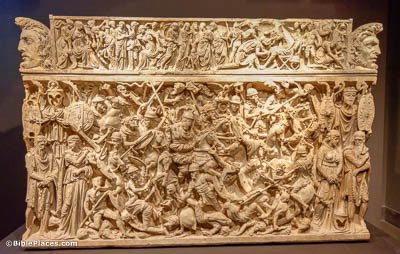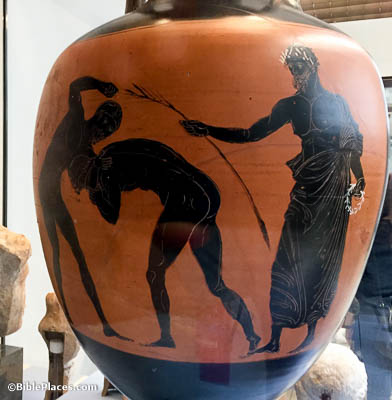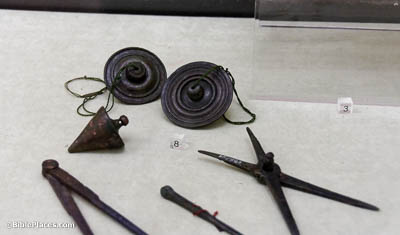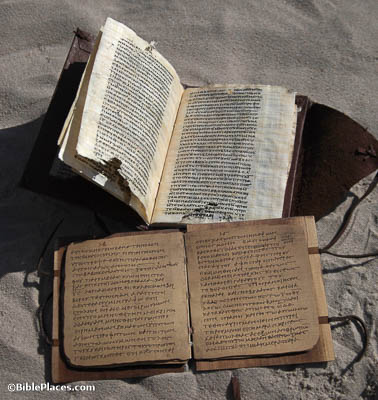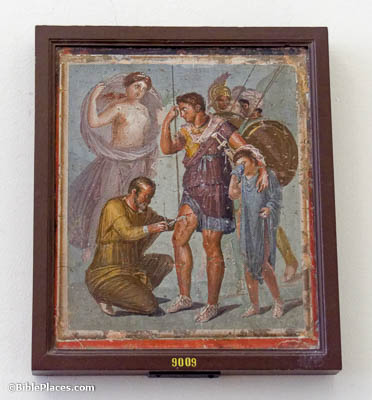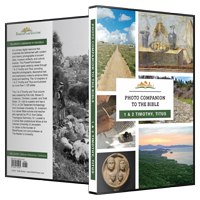No soldier in active service entangles himself in the affairs of everyday life (2 Timothy 2:4).
The phrase “soldier in active service” represents the Greek participle strateuomenos, which could be woodenly rendered “one who is soldiering.” Paul uses it to call attention to the need for focus and resolve in the midst of battle, where more mundane concerns no longer matter. This relief carving was photographed at the National Museum of Rome. It comes from the Portonaccio sarcophagus, which is thought to have been inspired by the Antonine Column.
